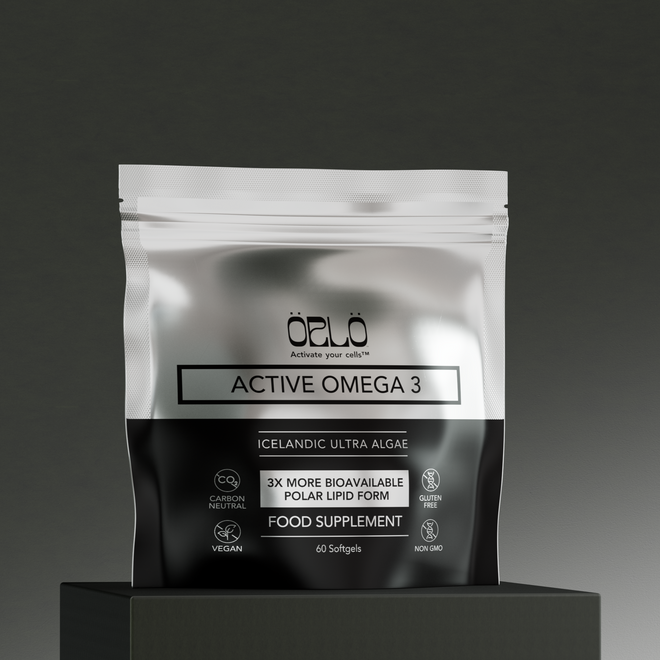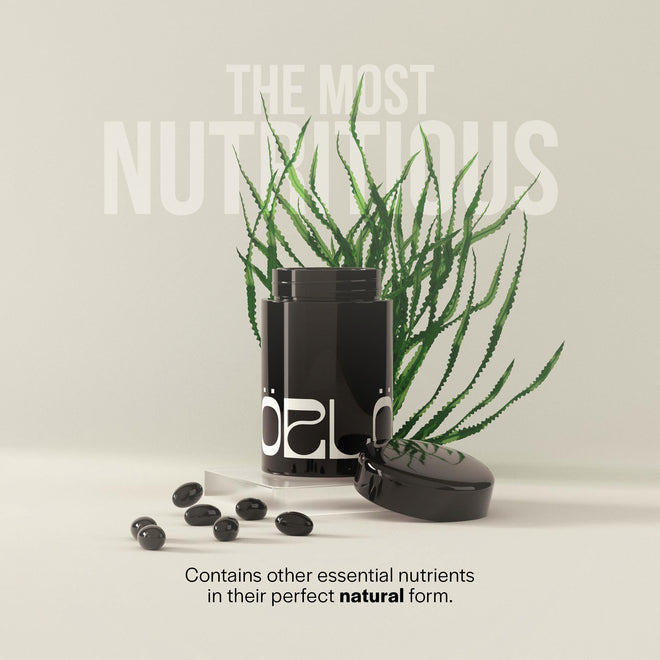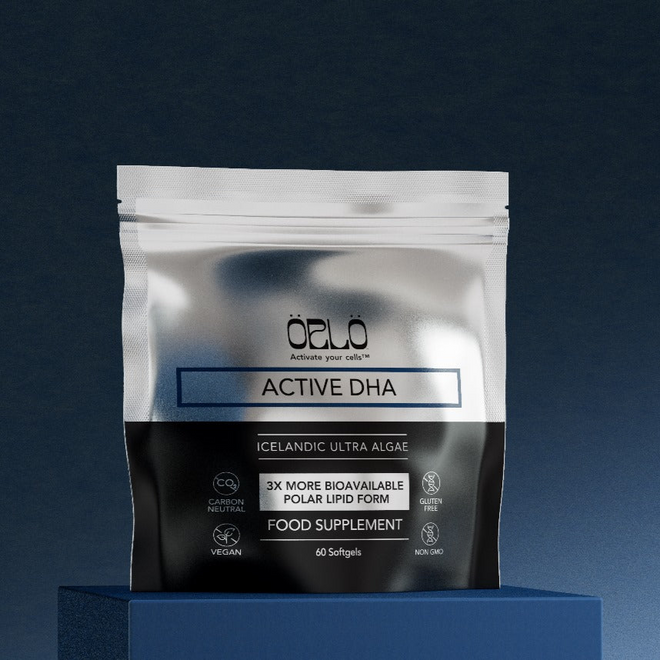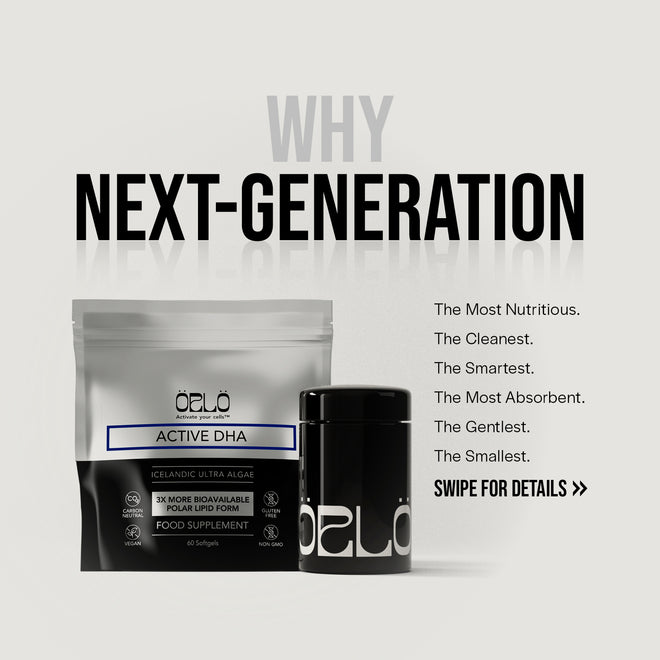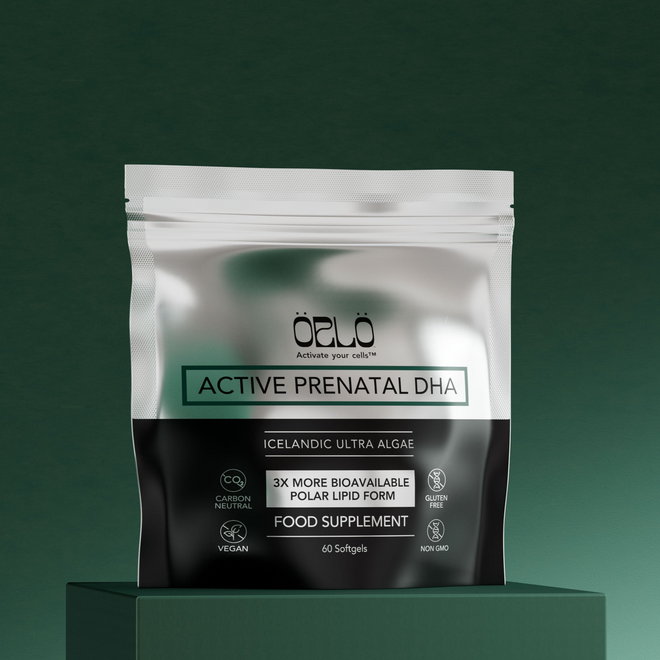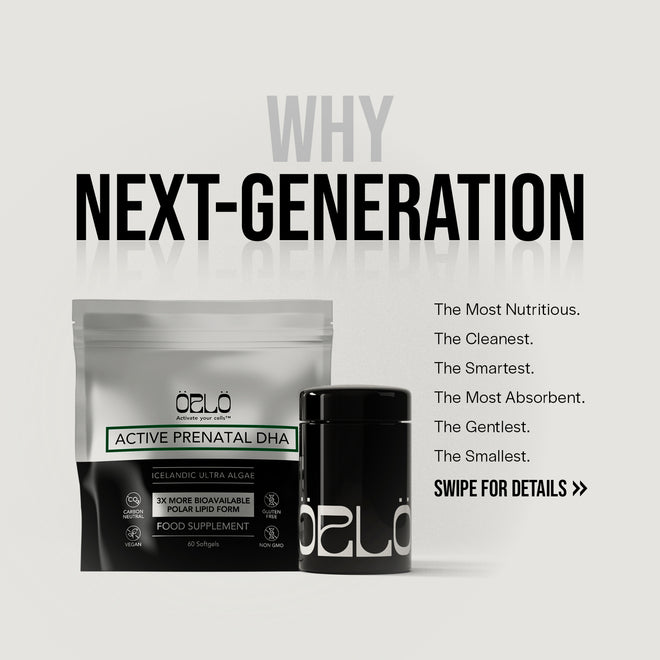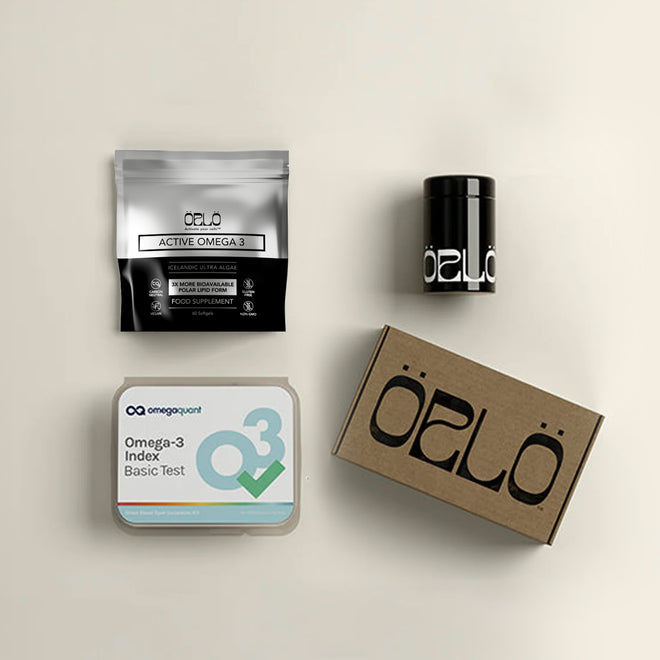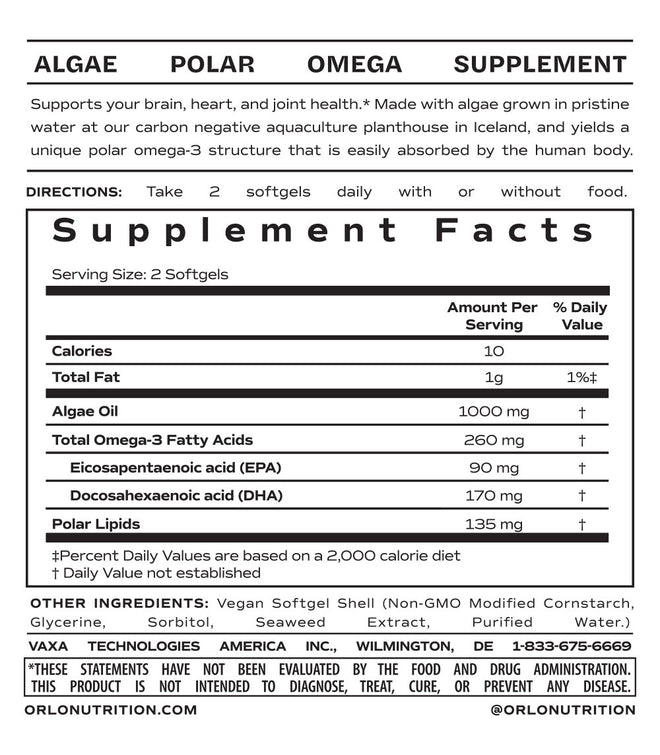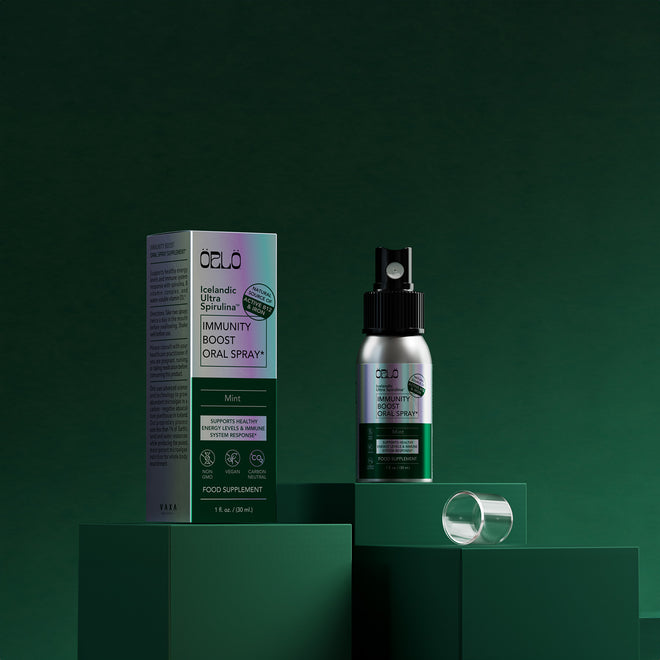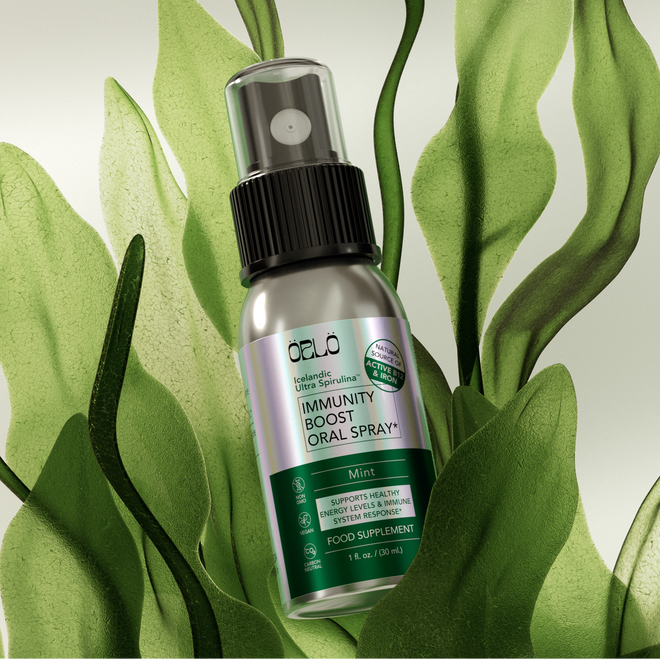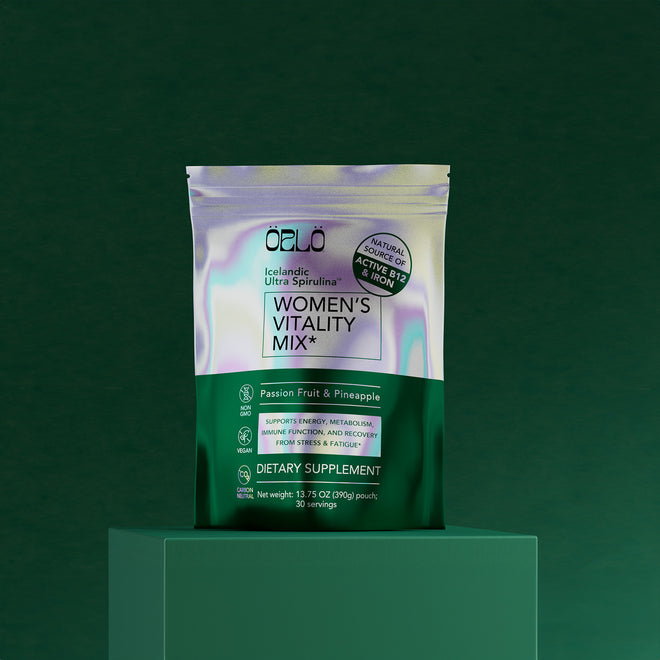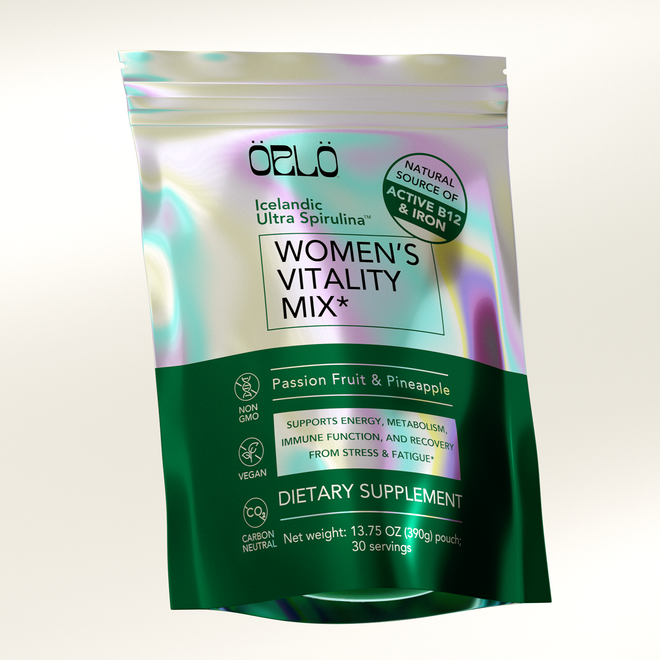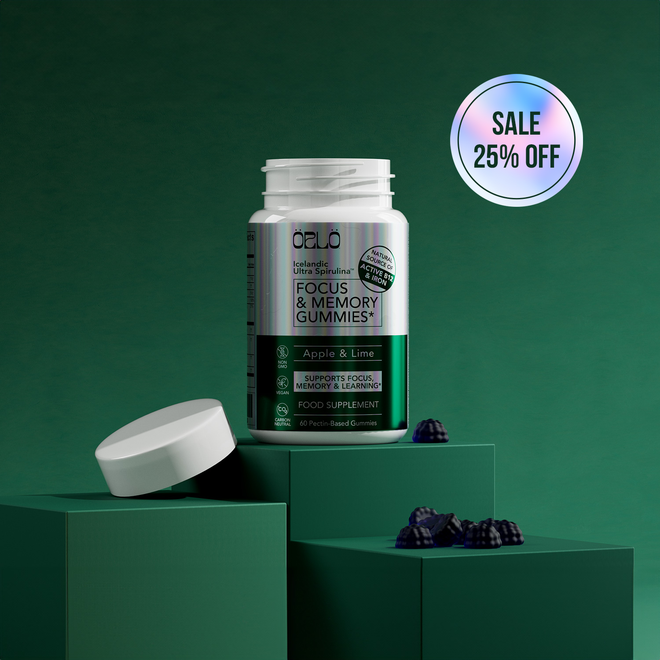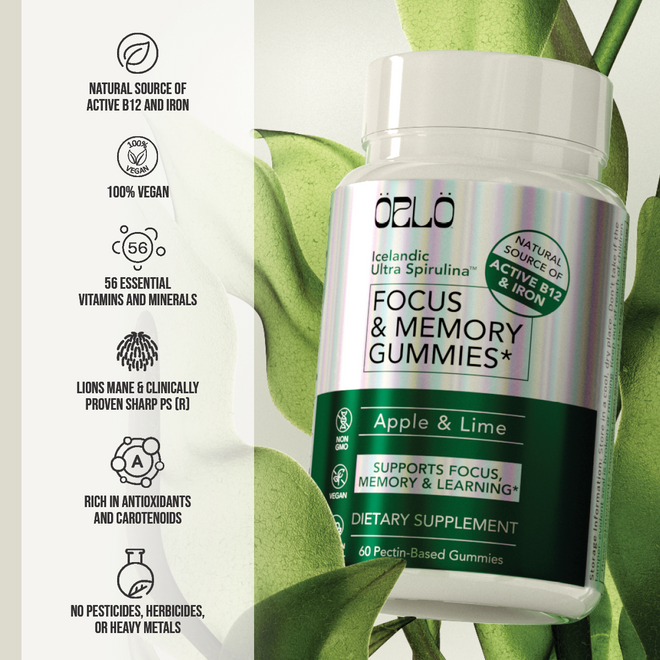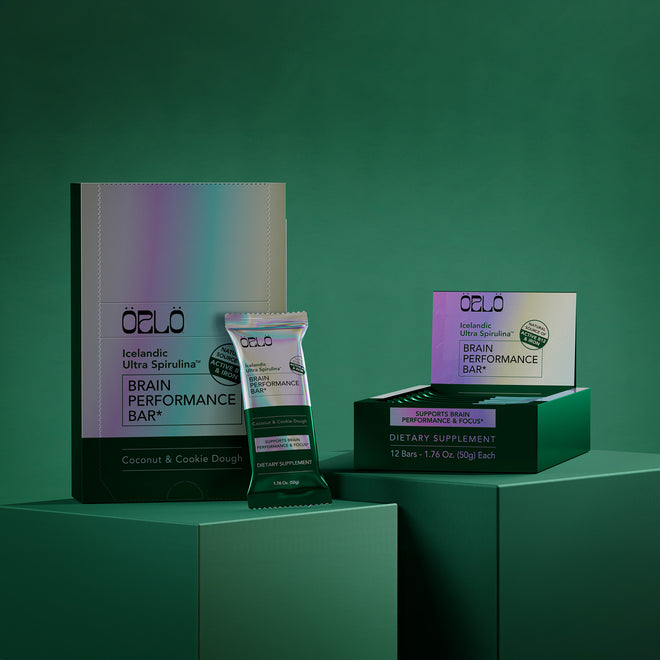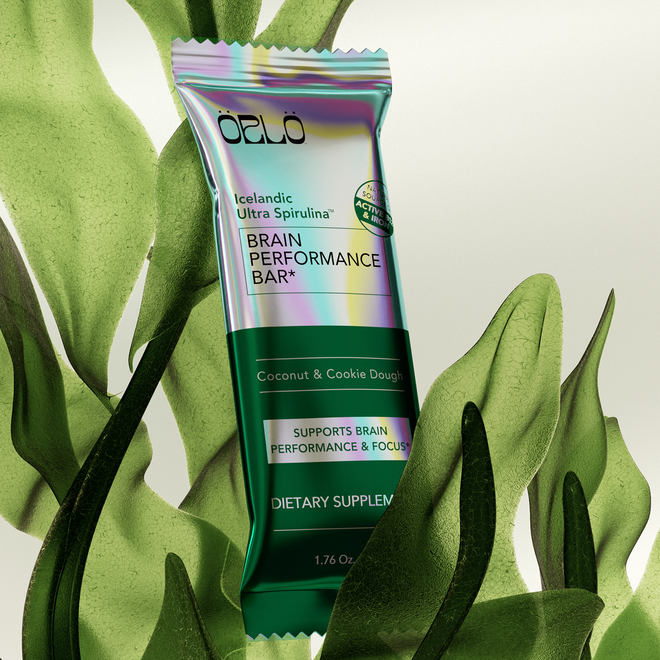25% Off - use code: HOLIDAYS
For The Love Of Animals: From Omnivore To Plant-Based To Vegan With Courtney McCullagh, VEGWORLD Magazine
Watch the episode here
It is never easy to remove meat from your diet, especially when it's a part of your custom and tradition. It takes real passion, compassion, and conviction for one to be able to live on a preferred diet and live meat-free. If you are looking into making the shift or have already started and could use some guidance on your new journey, this is the podcast for you! In this episode, Courtney McCullagh, a passionate vegan, writer for VEGWORLD Magazine, and co-founder of Sprinkles Creative, shares her compassion for animals and the challenges she had to face as she transitioned to a vegan diet. She also shares insights on healthy alternatives to ensure that her nutrition is without compromise. So tune in and be on your way to a healthier you!
Key takeaways from this episode:
- There are different ways to supplement meat in your diet.
- Your protein needs depend on your lifestyle.
- There are plant-based supplements that are high in protein.
- You can get creative when substituting for something you have allergies to.
- When going on a trip, it's best to research good places that offer vegan meals and plan ahead.
- Transitioning to a Vegan diet is a slow process. It's not something you do overnight.
Guest Social Links:
- Website: http://vegworldmag.com/
- LinkedIn: https://www.linkedin.com/in/courtneybgarza/
- Instagram: https://www.instagram.com/thecolorfulcourtney/
- YouTube: https://www.youtube.com/channel/UCEUON_gUzbSLp1ZviNGrdBQ
---
For The Love Of Animals: From Omnivore To Plant-Based To Vegan With Courtney McCullagh, VEGWORLD Magazine
Thanks for joining me for another discussion around nutrition and health without compromise. In this episode, we are going to take you on a journey to talk about plant-based diets and how to healthfully walk the path towards veganism if you so desire. Even as we open this discussion, we'll talk about responsible animal husbandry and some key concepts from vegan leaders, including the New York Times bestseller Jonathan Safran Foer who authored some incredible works of fiction and also non-fiction.
Joining me for this conversation on this episode is Courtney Garza-McCullagh. Courtney is the former editor-in-chief and continual contributor to VegWorld Magazine. She has traveled the world, connecting with people to tell stories of plant-based living, including a trip to Greece that we'll also get to dive into. Courtney is also an accomplished entrepreneur and the Cofounder of Sprinkles Creative, a social media management company that exclusively works with sustainable brands. You may recognize her trademark blue hair if you follow her in social spaces with her work as a public figure around a colorful vegan life. Courtney, I’m so glad to have you here. Welcome to the show.
I’m so happy. Thank you for that amazing intro. I'm so excited about all the things that you mentioned. I want to share more about that but especially about what you're doing. I was showing you, but just to say, I even got my Örlö. I've been doing it for about a week now and loving it.
I will tell you it's like each conversation I have about the brand is my opportunity to remind myself it's time to take my omegas. I took mine as we started this call too. Now, as we get started, I'd like to hear your story about your path to vegetarianism, plant-based lifestyles, then ultimately to veganism.
It's fun. To start, I like to tell people that everyone's on their own journey. No one should be pointing the finger like, “You didn't do it perfect enough,” because that's silly. Everyone has outside factors that are probably going to hinder them from getting to do something they want to do. I like to tell people that it took me about six years to go fully vegan after making the decision in my mind that I wanted to go vegan. Even though at the time, I was thirteen. I didn't even know what the term vegan was.
I just knew that I didn't want to eat animals anymore, but I couldn't go vegan at thirteen. One, because my parents were buying my food. I was in school. There are all these outside factors that made it hard for me to stop eating animals completely. It wasn't until college that I was able to go fully vegan because I was out of my own, able to buy my own groceries and whatnot. If anyone's familiar with Texas, that's where I live. There's a part of Texas called Fort-Worth that's very like a cattle ranch town.
I have some family that lives out there. We drove out there as we usually did for family gatherings and I saw a bunch of cows on the side of the road. They're in a pasture grazing and I'm like, “The cows are so cute.” All I wanted to do was go hug them then it dawned on me. I didn't watch a documentary. I didn't talk to anyone. It hit me like a ton of bricks. “Why do I want to hug this cow but also I eat McDonald's meat and cheeseburgers every Friday?” I kid you not. It was a tradition between me and my grandma. She picked me up from school and we'd go get McDonald's on Fridays.
I would get a double meat cheeseburger. No lettuce. No onion, just meat and cheese and a bun. I'm like, “That's crazy that I used to eat that every Friday,” for one. For two, it's crazy that I never connected it until that moment that I was like, “I wouldn't want to go eat my dog or my cat and I hug them all the time, so what makes a cow different?” I remember telling my parents and my grandma, too, I was like, “I can't eat that anymore.” They were like, “Why? What happened?” I'm like, “It doesn't feel right in my gut like in my soul. I can't.” I gave up red meat first, then I gave up pork. I want to preface, too that I'm a foodie. I love food. I love everything about food. My mom used to make this amazing pork roast.
I remember one day, she was like, “I'm making the pork roast.” I'm like, “Can you not?” She was so upset because she was like, “It’s your favorite. What do you mean you don't want to eat anymore?” I was like, “It's not that I don't like it anymore. I love the flavor, but I don't feel right about it. It feels consciously wrong to eat it.” She was like, “Okay.” Slowly but surely, I weaned off of every type of meat until finally, I was down to fish. I worked at a seafood restaurant for a few years as a waitress. Not a fun time.
It got me through college, so I'm thankful for it. When you slip in fish guts, you don't want to eat fish anymore. That was a fun time. That was my wake-up call to going vegan. Also, the studies have shown not only the health benefits of eating plant-based but also what happens to animals in slaughterhouses. I didn't need all that information, but I looked into it because, to me, as a compassionate, conscious human being, I felt it was wrong. Using the internet, using documentaries, I was like, “Let's get more information on this.”
Also, I started looking at recipes. I never cooked. My mom never cooked either, so it's not something we did. We'd usually go out to eat more often than not. My dad's in the restaurant industry. That's why we always were eating at his restaurant and whatever. I finally was like, “I should start cooking. I should start learning how to make some food at home.” I did, and that's when I got into vegan baking, which started my journey, even though it wasn't vegan. I was like, “I want to make stuff without eggs or dairy.” That was cool.

Finally, in college, if anyone again is familiar with Texas, there's a University of North Texas in Denton. They had the very first all-vegan cafeteria. We're talking 100%. No cross-contamination. It's like buffet-style vegan and it opened in 2010. They're known. If you google Mean Greens at the University of North Texas, they are on the map for being so innovative and cool for students like me who wanted that or maybe had an allergy to dairy or eggs. That's a thing, though. I was very thankful for that.
One of the things that I wanted to bring up as I hear you tell this story is that we even developed language to help disguise where we're getting our foods. Cow is beef. Pig is pork. Chicken, we somehow say, “It's just a chicken.” People develop less of an emotional attachment to this feathered friend and therefore, it becomes okay.
I think as we've developed as a culture, we have less of a direct connection to the food that we're eating. That also feeds some of the problems because then, when you have less of a direct connection, the conditions that the animals living in and the way they're treated and even the way they're slaughtered, they matter less because it's out of sight, out of mind.
It's very difficult to become educated on the responsible differences between, let's say, a regenerative farm. Growing their cattle with mindfulness at the center of how they're farming, that has practices around how the animal is butchered, killed and processed in the end so that the animal doesn't experience much stress throughout their lives.
It's so difficult for the average consumer to look at that and not feel some direct responsibility. They decide not to look out of sight, out of mind. There is a regenerative farmer who keeps their cows on the pastures behind my home. I overlook a herd of cattle that rotates between all of these different pastures in an undeveloped space. It's an open space preserve that requires rudiments on it. The rudiments, they graze and leave behind their poop, which is needed. Apparently, there are species of beetle that hunts by a site that's protected as a part of the preserve. That's why they need rudiments there to graze down enough to bear enough for this beetle to thrive.
There are also a couple of species of grass that rely on grazing to remain their most healthy that are native to California and that otherwise would not be able to thrive. This space preserves or services their home. I see the baby cows as soon as they're out of mama I got when they're one day old. I have that same sense of wanting to go up and hug them. They’re beautiful animals.
What I love about this particular farmer is their commitment to keeping everything as responsible as possible. These are not animals raised on feedlots. Local people bond together and say, “I want to buy a quarter of a cow or half of a cow,” so that they're getting an animal that, in the end, has at least led a good life while it was here, which is much different than the McDonald's hamburgers that you were getting.
That's the thing. I think the biggest understanding, obviously, is that there are multiple ways you can look at it. For me, in the end, I don't want anyone to have to suffer. Who does? If you educate people on what's going on in factory farms, that's when they start to wake up and as hard as it is. I am such a homophobe. I don't want to see that stuff. Nobody likes to, but as hard as it is, the documentaries do help drive the message home of like, “We got to change the way our food system is. We got to wake up because it's messed up.” If there's a local farmer like you said. That's definitely a better way.
I would prefer not even going that way. It’s like let the cows be dogs and let them be pets of ours. That's my perfect world. I know everyone's different, but in the end, let's make them enjoy life and have the life to live and have room to graze because they're stuck in such tight quarters in those slaughterhouses, the chickens, pigs, cows, all of them. It was like, “Can we at least get them some room?” I was on a petition group. I don't know if you've heard of The Humane Society of The United States, but I joined their group in Boston.
We petitioned in front of grocery stores in Boston to get people to sign to have a ballot on the Boston legislator to have chickens have cages that allowed them to move around and stretch out their wings. That seems so minuscule, but it is a huge deal because of the chicken cubes. This was a couple of years ago. The ballot was moved. Thank goodness. This was in 2015, but the chicken cubes are so tiny that the chickens can’t even spread their wings. That's crazy.
They're so close together that they clip their beaks off. They burn them off essentially with an iron when they're babies to prevent them from pecking each other.
Everyone's on their own journey. Everyone has outside factors that will probably hinder them from getting to do something they want to do.
It was like, “This is a little far. We need to at least make some room.” It's baby steps. I'm aware that this huge American food system has been going on since the industrial age. It will take some time to break down those barriers and educate people on what's happening. I think we're doing it. We are. I feel like a lot of education is going out there and especially in the age that we live in now. Everyone's so connected through social media and all the news sources. It's happening. It's going to take some time to rewire people's brains to, unfortunately, think more compassionately. Sad but true.
As you think about the concept of this show nutrition without compromising the ecosystem, your ethics, what does this message mean to you?
It's funny. I like to tell people that I didn't go vegan for health. I went vegan for the animals and for compassion, but they do go hand in hand. When I started doing the research, eating plant-based is so healthy. That's awesome. For me, it was a cherry on top. I was going to honestly do it anyway, but it was nice to be like, “Eating leafy greens, whole grains, whole fruits, all these things as opposed to junk food. Even dairy products or whatever products with names that you can't pronounce, chemicals products is so much worse than eating what I was gravitating towards.” When I went first went vegan, I ate a ton of veggies and hummus.
I love raw veggies with hummus. That was my go-to thing to eat when I was first going vegan. I was like, “I know this is vegan, so I'm safe.” When you think about it, that's so good though, because hummus is like beans and chickpeas. It’s so good for you and raw veggies. Adding any oil or anything to them. It was great to see the energy I felt. I'll be honest. I've never struggled with weight gain, so it's genetics. It's not like I lost any weight. I looked more healthy, if that makes sense. I was more like tone and energized and all the things and people noticed.
Even though when I went vegan, I was young, still. I have to show you, but I have a picture of me when I was eighteen. I did hair modeling. I still have crazy hair, obviously, but I showed someone the picture of me and they're like, “Why do you look younger than you were back then?” I was like, “I wasn't vegan back then.” Someone jumped in and said, “I'm regressed aging.” They're like, “You're aging backward.” I'm like, “I know. It's great.”
Benjamin Button.
I know. I was like, “I'll take it,” but it's because I don't have all that stuff in my system.
When you explain that earlier diet of raw veggies and hummus, you would eventually end up deficient in certain things because it doesn't have everything in it. As you advise people on this plant-based journey or on a trend towards veganism, what would you tell them? How would you like them to get started?
I didn't do this thing because I knew, but someone went vegan. They had no idea what they were doing and they ate quinoa raw and you're like, “No, that's not what you do.”
That would give you an upset tummy.
I know. They were like, “I don't know. This is vegan, right?” Yes, technically, that's vegan, but you're supposed to cook it. It's funny. In your early days of veganism, you feel like you're in the dark. Unless someone is coaching you or guiding you or you have a friend or something. I had no one. I was the only vegan in my friend group and my family and this was 2012. There wasn’t a ton of information out there at the time. I blindly like, “I'm going to eat things that are simple because I don't know what else is good.” There wasn't a lot of vegan cheese or meat back then either. It was new, which is probably good.

Some of them are meat-like products and I question whether or not they're as sustainable even in some meat products. When you start to thoroughly process food, you'll lose some of its benefits along the way. That has been proven in scientific research as well. It's a question of whether the impossible burger is a very good thing or not. You could debate on either side of that equation.
For sure and I have. I agree. That's why when I tell people when you're looking to go to a vegan diet, try to look at what you were already eating and don't try to be like, “I have to live without that.” Again, I don't think anyone should go vegan, cold turkey or what I like to call cold tofu because it's hard. It's hard to cut something out of your life, especially something that you've been eating literally three times a day for your whole life or more.
Think about what you love, the foods you love and keep those, but then maybe get rid of the things you don't love and supplement them with whole fruits and grains, veggies and leafy greens. For me, I always make sure my meals have some green. All my meals are colorful. It hasn't already been perceived. I love color. I also love to eat the rainbow because I feel good that way. I'm not a fan of brown foods. Don't get me wrong. I like bread, but it's not something I eat every day.
Grains are great. Rice and quinoa and all these things. I love corn. I know there's a whole conversation about GMO corn, which I know is a thing. Corn is one of my favorite things when you source it correctly. I once went paleo vegan and it was so terrible. I don't recommend it. Unless you're allergic to grains, don't do it. Paleo vegan means no grains, so no rice, corn, or flowers. It was hard. I was dizzy all the time. I don't recommend that. Eat your grains if you're not allergic, then fruits and veggies. There's been a lot of studies about how many servings of vegetables you need a day. I keep saying the number like flip-flops, so I think it's four servings or something like that.
What a serving is various to buy the vegetable, so it gets a little confusing. A serving of kale is a lot of kale to eat because it takes so much time to chew. If you braise it, it becomes much easier to consume. Do it like add it to soups much like you would with chard. There are all these things that you can do with vegetables. You need to open your mind to the creativity of adding them to your diet and cooking and integrating them in. I find ways to sneak things in. You've mentioned vegan baking. You can take a pumpkin, use it as the wet nutrients, and bind everything together instead of the egg.
An egg substitute is so good. Pumpkin or banana is great too. If you're going more of the low-glycemic, than I would say pumpkin, obviously. I think the easiest way or advice I can give is eat the rainbow. Eat colors. That's what's going to get you to feel great and make sure you have everything. It's every meal. They have those pie charts. Every meal, you should have a bit like a percentage of grains, greens, fruits or fats or whatever it is. Nuts obviously are great or tahini if you're doing something Mediterranean. That sesame seeds if you have a nut allergy.
I have a lot of friends that are vegan and allergic to nuts, which you would think is impossible. It's not. You can totally have a vegan diet and be allergic to nuts and be safe. There are a lot of substitutes out there, including sunflower seed. Butter is awesome. There are so many things. Hopefully, that helps. Eat the rainbow. Eat all the colors.
Many that are afraid to go vegan or vegetarian worry that they're not going to get enough protein. I would love for you to talk about how you get your protein. What would you say to somebody who's considering going vegan or vegetarian but is concerned about not getting enough protein? How do you get yours? How do you make sure that you get enough protein in your diet?
I love to tell people this because it's still the question. People are still asking. Me and my husband, I don't want to say we're bodybuilders because it's not like we're going out and doing bodybuilding shows. No hate on that. It's fun. I have a lot of friends that do that, but I don't think I'll ever do it, but I love fitness. I am a runner. I'm a swimmer. I'm a Yogi. I'm in the process. I have a month left of getting my yoga teacher certification course done. I'm about to be a certified yoga teacher. That's exciting. I also lift weights. My husband is teaching jujitsu. He's been doing martial arts since he was ten, I think. He is an action stunt man for movies and he's been vegan for seven years.
We love this question because it's we're active people. We're not sitting on the couch or sitting around. We are always out and about being very energy-pooling. We need to refill our bodies with protein because we like to see muscle in our bones. We love to see the strength that we have from it. In order to do that, you have to have protein for sure. If you want to see any growth, especially aesthetically. If you're looking for that, for him, he is because he does action movies. It's going to vary for everyone.
I think the American standard is out of whack with how much protein they say you need, but obviously, everybody has a different body shape, body form, genetics. For me, I'm 5’6” and I weigh about 110. I've always been a smaller person and my whole family has. What my husband said was 0.8 grams of protein per rod, per your weight, per your height. There's a formula that you come to type in. It always depends on your goals too.
Eat the rainbow. Eat colors.
I would advise if you're not a bodybuilder or you're not a big fitness person, then you don't need as much protein as I'm getting because I'm so active or he's so active. Also, if you're a male or female or if you identify as male or female, then you're going to need a different type of protein too. America, for some reason, has this like blanket like, “Everybody needs the same amount of protein.” That's not true. Everybody has a different body.
For me, what we love is we use protein powder supplements. I swear by them. I'm a huge fan, but I have friends that hate the chalkiness of it or the texture of it and to each their own. If you don't like protein powder supplements, which there are so many vegan ones out there, which by the way, it's pea protein-based. Those are the ones we prefer. There is soy like isolate. We're not huge on that. We prefer pea protein. There's a new brand out there that has a vegan way, which creeps me out, but I've tried it. It's basically the impossible model where they synthesize the same genetic makeup of way or meat-like products like the cow and the dairy.
If you look at bodybuilders, they're mostly eating like whey products and that's all dairy, which we're not obviously consuming that. Pea protein powders and tempeh is the highest source of vegan. Even though Japanese and Chinese people have been eating it for centuries, you can call it an alternative meat. Tempeh is fermented soy. It is soy. If you have an allergy to soy, probably not good for you. It's fermented soy, so it's got a higher protein count than a block of tofu. There's seitan. I’m sorry, seitan is the highest. I got it backward.
Seitan is the highest and there's tempeh. Seitan is not gluten-free. It's purely gluten. If you have a gluten allergy, don't eat that. It's literally gluten. We've made our own before. There's a certain type of flour that you can buy and you can put it in your pressure cooker. You can make your own. It comes out looking like a brain. Honestly, it looks like a giant brain, but you can cut it out. It's supposed to be like a meat substitute, but it's not like bread. People hear like, “It's gluten, so you're eating bread.” I'm like, “No, it's not bread.” It's like a high protein source and it's almost squishy. You can season it however you want to flavor it. You can marinate it. It acts like tofu in a way but almost like spongier tofu if that makes sense. We eat a lot of that.
I'm not gluten-free and neither is he, but we don't need a ton of gluten. We're not eating the seitan necessarily every day, but it's a good alternative. I will say since I write for VegWorld and also, I'm a vegan influencer, I do get sent a lot of vegan meat products. I'm working with a vegan chicken brand to do some content creation. Their stuff is made out of wheat gluten and pea protein. It's like a hybrid combo and it's very high in protein. One vegan chicken cutlet is 20 grams of protein, for example.
I'll eat one of those for dinner with some veggies and that's great. I'm not a total anti-vegan meat person. It depends on what's in it. If it's a bunch of synthetic stuff or stuff that I can't pronounce, maybe I'll pass, but this particular brand I love. I use it a lot and I'm glad to be working with them. Also, in a lot of vegan or VegWorld stories, I get sent products because they want us to write a review, so I will try them. My thing is, if it's vegan, I'll try it because trying it once isn't going to kill me.
It seems like you don't have any food sensitivities. You're lucky in that way. I have a son who's sensitive to soy, so we can't necessarily cook with that in the house. We'll see if he grows out of that. They often will grow out of food sensitivities. We'll see what happens there. I do want to talk about your trip to Greece. Let me position this because I have traveled the world myself and I did travel the world with an old boyfriend who was a vegetarian and found difficulty in some cases. Even finding spots where he could eat a vegetarian and not vegan meal in those cases.
In fact, I have another example that I'll pull up because I think that this is an incredible story too. Jonathan Safran Foer wrote the book, Everything Is Illuminated. He is an incredible award-winning author who hit the stage quickly in his early twenties. That book itself Everything Is Illuminated ended up being a film where Elijah Wood plays the main character. He tells a story of integrating a trip to Ukraine being with a family member and explaining that he was vegetarian. They didn't know what to do with that and literally gave him a potato for his whole meal because they didn't have anything else in the house to provide him.
It was so much a conflict with their culture. It’s like, “What? No dairy and no meat? How do you live?” It was a curiosity to them, as if he could almost be in a freak show. I think that has been in the past, even going back 15, 20 years. A lot of the reality in many places throughout Eastern Europe and even some of mainland Europe. I would love to learn from you what it's like now and what your experiences are when you travel. How easy is it to eat vegan? What's the state of the industry there?
I will preface, I do have my degree in Journalism. Any travel, especially with the age of Google now. Everybody can do this, but on any travel I take, I go into journalism mode. I've researched the heck out of it. I look up. I reach out to people. Usually, when I travel, I am writing an article for VegWorld. For example, in Greece, we call it our destination spotlight. It's a vegan travel guide, if anything. It's not a blog because we are an actual magazine, but in every issue, we have a destination spotlight. This one happened to be one of those. I've been planning this trip. I got back, but I've been planning this trip for months.
I was very fortunate to reach out to the vegan restaurants or the restaurants with the vegan menu and be like, “Letting you know, I'm coming. I'm going to write an article on you. I'd love to interview you or whatever and talk about how cool it is that you're in this country, this culture that may not be so keen on vegan, but you have these vegan options.”

They were excited to have that opportunity to talk about the unique placement they're in. If anything, I was stuffed on this trip. There were so many places and the cool part was, you'd be very impressed with this. I eat whole foods plant-based. I didn't eat any pho-meats. I don't even think we had any tofu. Everything was fresh, vibrant, and beautiful because the food was locally produced.
I had some of the best tomatoes I think I've ever had in my life because the lady literally made them on her roof. We loved it. When you think of Greek food, it's Mediterranean. You got your hummus, which I was happy about. The love of my life, as I call it. Lots of vegetables. We had lots of pita. I will say I was thinking about this while I was there. If someone's gluten-free, it would be hard because we did eat a lot of bread. A lot of pita, a lot of stuff like that, the types of lavash bread that they made, but we had a lot of stuff that was gluten-free too.
Lots of eggplants, tomatoes, stuff like that. I'm sure if you think of any Greek food or Mediterranean food you've had, that's what it was but in abundance. We had dolmas. If you guys don't know what dolmas is, it's like rice wrapped with a banana leaf and so good. Lots of flavor in there and stuff like that. Very green heavy, lots of greens, lots of reds and Browns, but I had no problem. We stayed at an all-vegan hotel. It was basically a bed and breakfast because we woke up with her knocking on the door, bringing us breakfast to our room. She made these tahini walnut crepes. She made a vegan carrot cake. It was my husband's birthday, so she made a carrot cake, but she didn't put icing on it.
It was more like a zucchini cake. Does that make sense? Zucchini bread, it was like that. It was more shreds of carrots and stuff and walnuts, but everything was so pure. I loved how everything was like, “We never felt too heavy or lethargic after eating a big meal,” because it was the most clean and fresh organic produce. No problem navigating that. I do advise people if they're going to go to another country, do your research. The worst thing you could do is going and be like, “I’ll find something.” It might be a little hard because of the language barrier but also navigating. Maybe set reservations for places. Do your research, then book those. That's what I did.
We had everything planned to a tee. I'm a type-A personality when it comes to traveling. I'm like, “We got to make sure it's all set.” Also, it was a work trip, basically. I made sure that we were covered. I'm so thankful that Greece has evolved, you could say, in the last couple of years. They even said that. In the interviews I've had with the restaurant owners, they said that it's innovated in the last 5, 10 years and wasn't used to be that way. If anyone has seen the movie My Big Fat Greek Wedding, you probably know that they're very meat-heavy. They eat a lot of lamb, which is sad to me. They eat a lot of meat but had no problems eating vegan, so that was good.
It's a culture that's steeped in tradition. You mentioned earlier in our conversation that the tradition that you had with your grandma going to McDonald's every Friday. That's one of the hardest things about people changing their diet. Even if it is, let's say somebody's gluten sensitive or has a health condition that makes it harder for them to consume gluten. I'm thinking of an example of somebody who's a personal friend and also an influencer. Her name is Diane “V” Capaldi. She goes by V.
She had to say goodbye to gluten entirely. As somebody who is a Capaldi, you're coming from the Mediterranean world. I'm a Bellezzi, so I understand this too. Saying goodbye to pasta itself is something that is seen as threatening to the familial culture in a way. I think we confront this anytime that we make choices that go against what your family is used to. That only exploded up when you talk about an entire culture.
I wanted to talk for a moment about the pendulum swing that I think sometimes occurs when we have extremes. Some people consider veganism to be a real extreme on one end of the equation. I started to learn about something called the carnivore diet. At first, I thought it was a joke. I'm like, “People can't be subsisting on only meat.” There are a couple of podcasts out there, so I was listening to them and trying to get a grasp of what they were talking about.
Ultimately, I was surprised to learn that a few MDs are pushing this diet. Even have their own podcasts where they will talk about the benefits of going carnivore. Now, it turns out that carnivore isn't purely meat. It's meat, dairy, cheeses, yogurt, all the dairy. It's also honey and fruit. They get their fiber from fruit but not vegetables.
The reason they're getting that fiber from fruit and not vegetables has to do with what they are purporting to be the compounds that plants create to ward off pests. Their argument, I think, centers around this concept that if you consume plants, there's going to be some inflammatory response within your body to those fibers into the compounds in those plants. It’s because they have these compounds that are essentially meant to ward off pests.
I've never heard of a doctor up to this point recommending people never eat plants. The meat, to be a little punny here of this entire pitch, seems to be to help people restore metabolic health. I get it. I get if you're going to be someone who thrives in the extreme. Some people, literally, if you say, “Here's the controlling doctrine, do this and you will get better.” They will follow that path and they'll see results. I can't imagine that a diet like this is healthy over the long term. They're making suggestions along the lines of high cholesterol doesn't need to be a bad thing if you're eating this way. All these markers that we know to be indicative of heart health issues.
Nobody wants a finger waving in their face saying you're doing wrong. We're all human. We want to be cuddled and guided.
I have a lot of questions as I look at this diet, but I've even seen people who have supposedly had a carnivore diet for thirteen years interviewed on camera and they look healthy. Maybe they're telling the truth, but the skeptic wires on me are way up. I'm positioning all of this to get your thoughts about this rise of a carnivore diet and how you might talk to people who might be considering something like that.
I didn't mention it when you were asking about the protein stuff and it hit me as you were saying that. I'm like, “I forgot to mention,” that plants have protein. Broccoli has tons of protein. Grains, of course. Quinoa, like I said, brown rice is an amazing source of protein. Pretty much every vegetable does. Maybe lesser than the other things I mentioned, like protein powders, tempeh, tofu or seitan. Those have more protein, but if you're trying to avoid all that and you want to eat plants, you can. There are tons of posing in there. That's why it's baffling to me to hear you say that they're not eating any plans. That makes me so sad.
Only fruits. The fruit of plants because the first is meant to be consumed by animals to disperse seats. That’s their thinking. You can eat berries. I'm guessing you could eat tomatoes and avocado because these things are probably technically in the fruit space, but they may even advise not to eat tomatoes because there's this controversy over lectins in tomatoes and whether or not that's healthy. Honestly, I think they probably recommend no tomatoes as well. It'd be impossible for an Italian.
Yes, I was going to say, “Oh no.” That's all of the sauce. I would say with anything, again, you could Google this, but there are so many fad diets that come and go forever. In the dawn of time, I feel like there have been bad diets. What was the big one that was big? Keto?
Keto is still pretty big.
I remember when it rose. Do you remember when everything was gluten-free for a while? Everyone's like, “Gluten-free makes you lose weight.” Not necessarily. It was mostly for people that had a gluten intolerance or Celiac then Keto rose to power. Paleo was a big thing for a while. It's not as much. I feel like I don't hear about it as much as I used to, then Keto is so sad. We all have read the research on what Keot helps with. It's like if you have cancer or you're trying to get over some big illness or like that.
You starve your body of sugars, then you can get over some challenges. Yes, I tend to agree with you that it's not meant for a long-term dietary situation.
It sounds like the Keto situation. It’s like what you said, it sounds like, “Maybe this works for someone that has a serious cancer fight they've got to go through,” and that's great. It seems like that's always meant to be temporary, though. Not long-term, but if you don't have that, if you don't have some illness, then why would you put your body through that when you're going to gain all the weight back? You're going to probably cause some new issues in your body because you did that. To me, don't even start. Ask yourself, why are you doing this?
You're going to achieve a lot of the same results by doing intermittent fasting. Ultimately, having a sustained workout or getting more active. There are all sorts of things you can do to send your body into ketosis as well. Your brain needs sugars. That's real too.
We need carbs too.
As we recenter this conversation, I want to go back to a moment for a suggestion that also comes from Jonathan Safran Foer. He advises people to consider taking a different approach to eating because he also acknowledges that vegetarianism might be too hard for some people. That it's a journey and that we eat multiple times a day. In his book, We Are the Weather: Saving the Planet Begins at Breakfast, which was published in 2019.

He advises people to simply not consume animal products, which would mean being vegan. Don't consume animal products before dinner. If that erased 2 or 3 meals from your day of consuming animal products, that would have a much broader impact on the environment. This was also released as an essay within Paul Hawkens' book, Regeneration: Ending the Climate Crisis in One Generation. Courtney, I know that you will love this picture.
If you flip to his article here, you see a picture of a beautiful Black Angus baby cow. It’s a nice way to think about consuming things differently. Even if you aren't ready to do something as simple as going vegetarian or vegan, you see that beautiful cow. A sweet little face. What are your thoughts about doing something like that as a step towards change?
It’s awesome. I've heard similar concepts. For example, you eat raw foods. Not necessarily a juice fast but something like that where it's like you're eating fresh fruit and vegetables that aren't cooked or seasoned or soft-sauteed in oil or something. At dinner, you can eat the normal stuff that you would eat. I've started similar stuff and there's no doubt that's a huge impact on so many things, your health, the environment, animal consumption and animal welfare.
I think that's great because, as anybody knows, we petitioned with our money. How many dairy or meat products are we buying? If the numbers go down in the grocery store, then that's when people start to notice, “More people are looking for plant-based or more people are for dairy-free or whatever it is. Gluten-free, all the things.” All the data shows our buying power. If you're like, “I can't dedicate my whole three meals,” or however much you eat in a day, then cool. Two out of three is awesome. More than great. Even one meal.
I've seen so much data around people doing one vegan meal, which could be lunch, dinner, or breakfast. Whatever you can do is best. That still has a lot of impact. I love the idea of doing what you can and figuring out your journey because one thing I've seen in my years of being vegan is I cannot understand the people that shove veganism down people's throats. It seems too aggressive and abrasive. It's like, nobody wants a finger waving in their face saying, “You're doing a wrong. Nobody wants that. We're all human. We want to be cuddled and guided.” Tell me more. Guide me as a teacher. Don't yell at me.
For me, it's like, I didn't go vegan overnight. It took me years. Now, I would never turn back. I would never change. I think that it all depends on your situation because everyone has a different setup for their lives. Sit down with yourself, make notes, take everything into stock and say, “This is what I can do. I can get breakfast. No meat or dairy at breakfast, done. I'm going to try that for a month. See how it goes and maybe I'll up that to lunch too.” That's such a cool idea. He's got a good plan there.
As a result of that suggestion, I did shift away from consuming milk because the one place I continued to drink milk was in my coffee every morning. I've transitioned to oat milk. I love it in my coffee now. The other thing that I will share with everybody. I was happy that I made that change because I learned in reviewing Dr. William Li's work with Eat to Beat Disease that milk inhibits the chlorogenic acid in the coffee. The chlorogenic acid in the coffee is very health-promoting.
You get the benefits of coffee as long as you do not put milk in it. For those dairy drinkers out there, if you have coffee, consider a shift to not having any milk in it at all or to using plant-based milk. That could be one step in the right direction. I am closer to the no animal products before dinner as a result, but I will admit, I still buy eggs from my local farmer's market. I love them. They have pictures of all their chickens up.
I have a conversation about it all the time. The fact that you're looking into where they're sourced from is huge. That's amazing that you do that because, like you said earlier in the conversation, most people are out of sight, out of mind. The fact that you're like, “Let me think about this. What can I do to be better?” That’s great.
I may pay $8 to $10 for a carton of eggs, but I'm getting it from a local producer who has named every chicken they have. They have pictures of them in their booth at the farmer's market, which is purely adorable. These chickens lead great lives. I feel okay about that. That's my animal product exception during the day. I do have young boys and as I mentioned, one of them is sensitive to soy. We still do rely on some responsibly sourced animal proteins.
That’s the thing that I would advise people to move towards. If you're not ready to go vegan or vegetarian, think about the source of your foods and make some changes to get high-quality foods, animals that are treated well and ultimately, that would be a positive choice for everybody out there. You'll feel better about the decisions you're making and honestly, the food will be healthier too.
Don't let anyone else dictate what you need to do or should do.
Win-win across the board, the planet, the animals and your health. Three main things you're helping. That’s awesome.
If you could leave our audience with one message, what would it be?
I feel like my theme throughout this whole thing has been figuring out your journey and stick to it. Don't let anyone else dictate what you need to do or should do. That's always the scary word. It’s like, “I should be doing what?” Figure out what's right for you. I feel like everyone has intuition in their gut, like, “This feels right,” or “This feels wrong.” Follow that and then you'll ultimately figure out what's the best thing for your health and your lifestyle.
I agree with that completely wholeheartedly because I feel like health is a lifelong journey. We learn along the way and what works for us now may shift tomorrow too. Keep your headset on and commit to learn. Stay curious. Ultimately, you will produce better outcomes in your health by listening to your body and what you need and what feels right to you as well. Has it been published yet?
No, it hasn't been written yet, but I did get one out about Canada, How to be Vegan in Vancouver. I just got back from Canada as well and that was a fun journey. I do have a link for that one, though. I can send you. As I said, I travel a lot and my purpose for traveling is to show how easy it is to be vegan in different cultures. I've never been to Canada. It was my first time and it was cool.
That's perfect. I would also love to ask you for a recipe of your favorite hummus if you have one that you make.
I do. Another thing and again, this is my journey. I don't eat a lot of oil. I'm not fully oil-free, but I do cook oil-free. My hummus recipes are oil-free and they're still good. You don't need oil. It makes it more liquid, but if anybody knows about tahini or even aquafaba, that's the game-changer. I'll send you that recipe. It's so awesome.
I make one that's tahini-free because I prefer more of the garbanzo and lime. I use a lot of cayenne pepper and perhaps more than most people do, but I love my hummus spicy. This is my daily meal, my treats. I call it my treat because I love sourdough bread, but I don't eat very much bread at all. I take a slice of sourdough bread and I toast it. I put avocado on the bread, the hummus that I make and the fried egg that I make. The egg is fried. It's in a ceramic pan, so it doesn't need a lot. It's a tiny bit of oil and I use coconut oil for that because it can withstand high heat. It's incredible. It's one of the most delectable things. I do add lime salt on top and my favorite hot sauce, which is tapatío.
It's the best.
All of those things together, I know it's not dessert. It's all savory, but it's as impactful as a nice treat each day would be for me.
Not everyone is a sweet person. I totally get that. No, I love that. Sometimes you get it. That's your journey. You got to find the things that make you happy. I understand. The love of my life is popcorn. I usually make popcorn on the stove kettle. I have one of those old-timey machines we got for our wedding present and popcorn, which is my favorite thing in the world for some reason. I like it savory. I put nutritional yeast on top to make it like cheesy popcorn and it's the best.
I do that for my kids. We have an air popper. I go that route because I like to not cook it with oil too. I imagine that you're not using oil for that. That's great. We got to talk about food too, so I love that. Thank you so much for joining me.
I realized I do have the video that I shot on all the things I ate in Greece. I will send you that link because that is posted so people can see the visuals then I'll have the article later. I'll send you that too, so hopefully, people will like it.
Thank you for joining us for another episode of Nutrition Without Compromise. To learn even more, visit OrloNutrition.com for our complete blog related to this episode. I'm going to include those recipes, so you have some tools in your hands to go ahead and get started on a different hummus using Courtney's perspective. Thank you for joining us on this journey. If you have questions for me or for Courtney, please feel free to send an email note directly to Hello@OrloNutrition.com. As we close this episode, I hope that you'll raise a cup with me as I say my parting words. Here's to your health.
Important Links
- Jonathan Safran Foer – Facebook
- VegWorld Magazine
- Sprinkles Creative
- Örlö
- The Humane Society of The United States
- Everything Is Illuminated
- Diane “V” Capaldi – LinkedIn
- We Are the Weather: Saving the Planet Begins at Breakfast
- Regeneration: Ending the Climate Crisis in One Generation
- Eat to Beat Disease
- Hello@orlonutrition.com
- https://www.Linkedin.com/in/courtneybgarza/
- https://www.Instagram.com/thecolorfulcourtney/
- https://www.YouTube.com/channel/UCEUON_gUzbSLp1ZviNGrdBQ
- https://VegWorldMag.com/vegan-in-vancouver/
AboutCourtney McCullagh

Courtney McCullagh is a passionate vegan who brings a love for journalism, creativity, and helping local businesses and animals, together with compassion.
She aims to create content that makes a difference. Through colorful, well-researched, and unique content, she aims to always educate and inspire her audience.
With her social media agency, Sprinkles Creative, she also assists businesses with their branding strategy. She enjoys traveling the world to write for VEGWORLD Magazine, an international vegan lifestyle publication, promoting plant-based stories about vegan products, services, and individuals from all walks of life.
